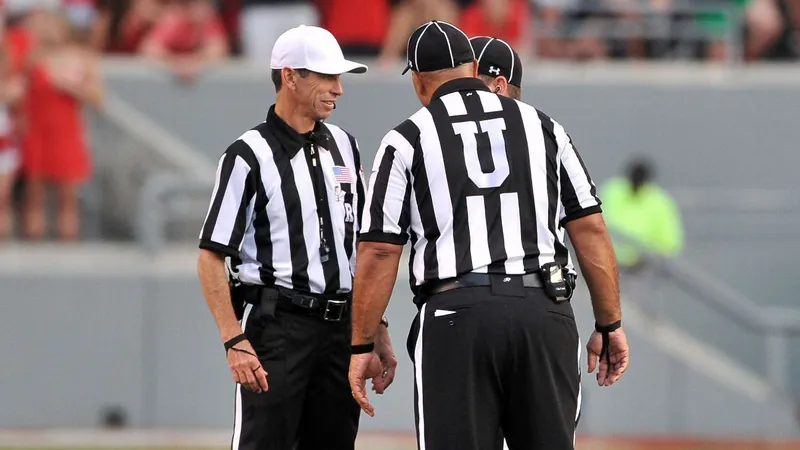
NCAA Takes Bold Steps to Eliminate Fake Injuries in College Football
2025-04-17
Author: Ming
In a groundbreaking move aimed at tackling a long-standing issue in college football, the NCAA has implemented new rules to target players who fake injuries. This decisive action comes after years of concerns about the integrity of the game.
Starting this fall, teams will face penalties if medical personnel are summoned to evaluate an injured player after the referees have spotted the ball for the next play. If this occurs, the team will be charged a timeout. Should they lack any remaining timeouts, a delay-of-game penalty of five yards will be assessed.
This change was prompted by teams using fake injuries to disrupt their opponents' momentum or conserve timeouts. The NCAA previously allowed for postgame video reviews to identify teams exploiting injury timeouts, but now, the organization is taking a proactive stance during games.
"Our Football Rules Committee believes that these actions tarnish the reputation of the game," emphasized NCAA official Steve Shaw. He noted that the committee produced a compelling nine-minute video showcasing instances of potential injury feigning from last season, illustrating a pressing integrity issue.
Shaw stated, "Watching that video made it clear that action is necessary. Some players may feel that faking an injury is acceptable. We want to put an end to this. While I can't promise a perfect solution, this is a strong first step." He added that the fear of losing a timeout would deter players from these deceptive tactics, as timeouts are highly valuable in the game.
If the new rules fail to yield the desired effect, Shaw hinted that further actions might be considered.
In addition to tackling fake injuries, the NCAA panel introduced new overtime rules. From the third overtime period onward, each team will receive only one timeout, encouraging rapid play to ensure a timely conclusion.
Other noteworthy rule changes include:
- Instant replays will now only use the terms "upheld" or "overturned," eliminating previous jargon like "confirmed" and "stands." - Offensive players may not position themselves directly in line with the kicker during punts, ensuring a stricter scrimmage formation.
- If a kickoff return team signals a "T" with their arms, they forfeit the ability to return the kick.
- New rules will also restrict defensive players from mimicking offensive signals and enhance penalties for too many players on the field.
Overall, these developments mark a significant shift in college football regulations, promising not only to clean up the game but also enhance its integrity and flow.


 Brasil (PT)
Brasil (PT)
 Canada (EN)
Canada (EN)
 Chile (ES)
Chile (ES)
 Česko (CS)
Česko (CS)
 대한민국 (KO)
대한민국 (KO)
 España (ES)
España (ES)
 France (FR)
France (FR)
 Hong Kong (EN)
Hong Kong (EN)
 Italia (IT)
Italia (IT)
 日本 (JA)
日本 (JA)
 Magyarország (HU)
Magyarország (HU)
 Norge (NO)
Norge (NO)
 Polska (PL)
Polska (PL)
 Schweiz (DE)
Schweiz (DE)
 Singapore (EN)
Singapore (EN)
 Sverige (SV)
Sverige (SV)
 Suomi (FI)
Suomi (FI)
 Türkiye (TR)
Türkiye (TR)
 الإمارات العربية المتحدة (AR)
الإمارات العربية المتحدة (AR)